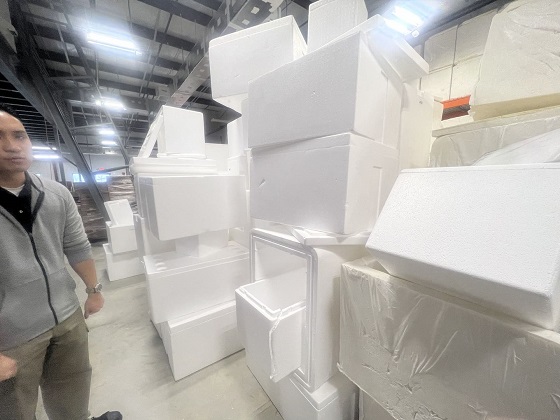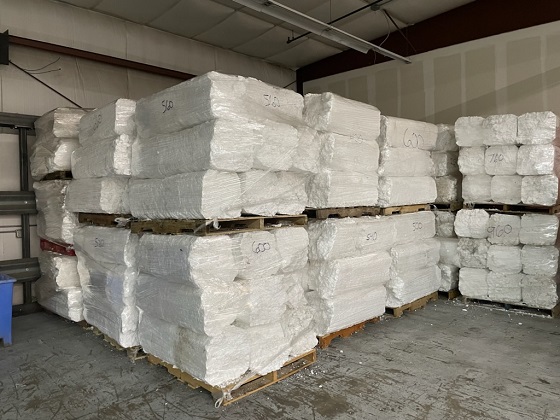Recycling EPS Fish Boxes | How to recycle your polystyrene fish boxes efficiently?
Fish boxes are usually made of EPS, also known as expanded polystyrene. They are used for gathering, storing, and transporting fresh products, like seafood and vegetables. EPS fish boxes are very matched for this purpose as contact product packaging because of their insulation, protection, and safety properties.
Around 35,000 tonnes of EPS are used for this objective in the Australia every year. In the fishing industry, these EPS fish boxes are one of the most used packaging.
The material in fish boxes is created from PS - polystyrene and 98% air. Fish boxes of EPS are the leading choice for landed fish because of their exceptional insulation properties that maintain them fresh, preventing them from generating food waste. EPS is exceptionally light-weight yet has premium thermal insulation properties that help in reducing the requirement for cooling, e.g., adding heavy ice. This also helps save energy while delivering and during storage for the entire procedure of the logistic chain.

Make the Best Use of Your Waste Fish Boxes by Recycling
Fish boxes are 100 % recyclable but have a low recycling rate in Australia. When not recycled, fish boxes end up in landfills or incinerators for energy extraction. Yet being a mono-material product packaging (significance that it only contains one type of material), the fish box is easy to recycle.
When compacting used fish boxes, we can achieve the following:
A massive decrease in landfills (as this material is of extremely high volume).
Decrease in the consumption of new raw materials, like virgin polystyrene.
Savings on both water and energy usage from the production of new fish boxes.
Reduction of CO2 emissions and, as a result of this, far better climate change.
Reduction of litter in the environment.
Additionally, economic and social advantages are to be anticipated, like the creation of new jobs, the promotion of plastic recycling processes generally, and commitment with the whole worth chain.
How to Recycle Fish Boxes by Compacting
A technological, economical, and eco viable solution for recycling fish boxes is to have them collected after usage, compacted, and recycled right into new EPS materials. This implies a completely closed loop of a life cycle for the fish box.
The utilized EPS boxes are rather valuable and highly desired in the market. This indicates that if you have EPS, the ideal way to manage it would be to compact it and sell it for recycling - This typically creates a good profit, as this price for compacted EPS is excellent.
EPS Foam Provides an Important Edge for Recycling Fish Boxes
As specified, fish boxes made from EPS are one of the most effective material for saving fresh fish, transporting them to the point of sale, and keeping them fresh till they reach the customers.
Fishes are caught, piled in boxes, and afterwards delivered to the market or wherever they are sold. There is a false impression that when fish boxes are empty, remains of fish, seawater, or "smelly contaminations' need to be cleaned to make sure the box is ready for recycling. Nonetheless, neither these remains neither the smell affects the compacting process or the further mechanical recycling. So, there is no excuse not to compact and recycle your used fish boxes.

Compact Fish Boxes Efficiently with GREENMAX Compactor
When it involves finding the best solution for compacting fish boxes, there are a few things to consider:
GREENMAX offers compacting solutions for fish boxes for capacities from 50kg/hour and up to 300 kg/hour and even a double or triple solution for 400/600 kg/hour.
When recycling fish boxes, it usually makes good sense to think about some parts, like the hopper and the discharge port, to avoid them from rusting when touching the material.
Likewise, depending on the specific location and demand, the GREENMAX screw compactor can be built into your production line or adapted to the worker handling the boxes to make compaction and recycling as easy as possible.
GREENMAX provides a buy-back service for compacted fish boxes, saving you time in finding buyers.
